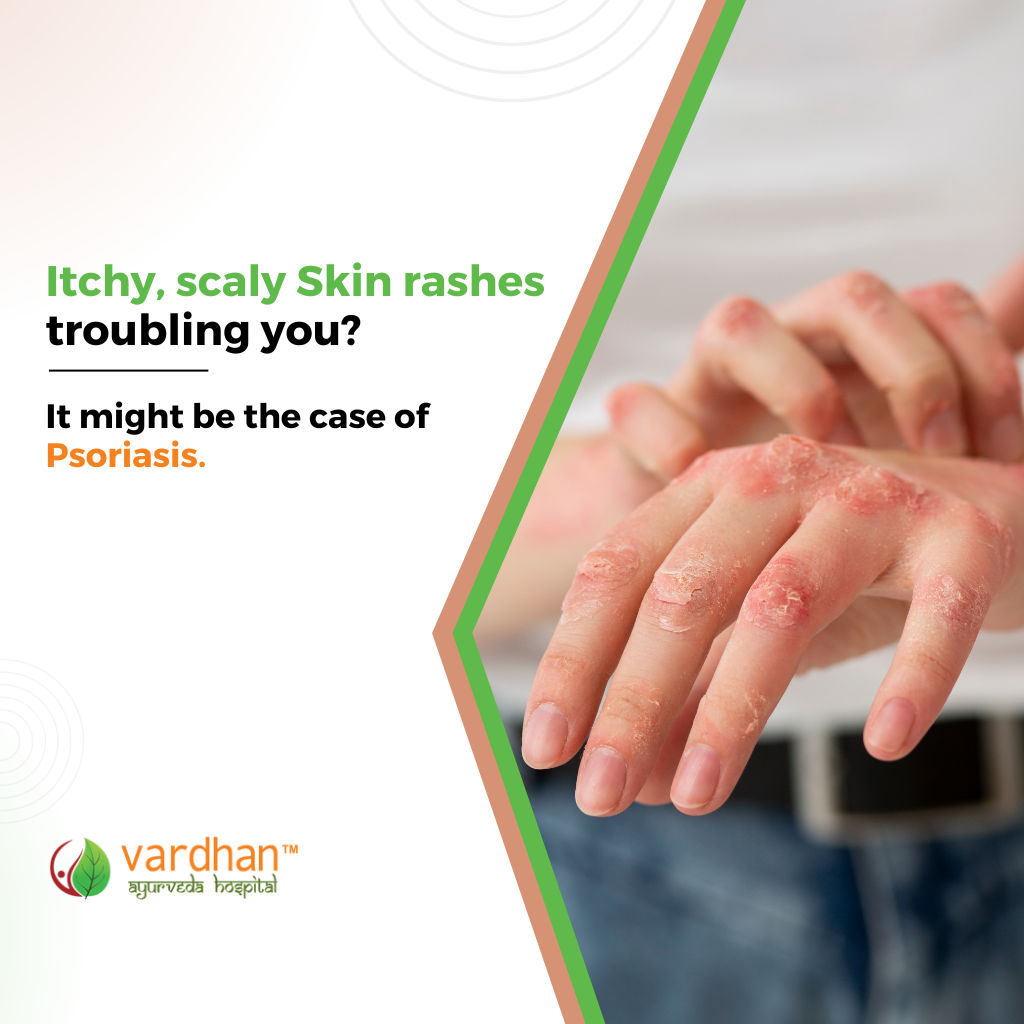As a child, Swathi loved nothing more than playing outside in the warm sunshine. But as she grew older, she noticed that something wasn’t quite right. Her skin would break out in itchy, red patches, and no amount of lotion or ointment seemed to make a difference. At first, she thought it was just a passing phase, but as the years went on, the patches became more frequent and more severe. Finally, at the age of 23, Emily was diagnosed with psoriasis, a chronic autoimmune condition that affects millions of people worldwide.
For Emily, the diagnosis was a shock. She had always been healthy and active, and she couldn’t understand why her body was betraying her in this way. But as she began to research the condition and connect with others who had experienced similar symptoms, she realized that she wasn’t alone. Psoriasis might be a challenging and often frustrating condition, but it was also manageable with the right approach.
That’s where this blog comes in. Whether you’re a psoriasis sufferer like Emily, or simply someone seeking to better understand this complex condition, we’ve got you covered. So if you’re ready to take control of your psoriasis and start living life on your own terms, read on to discover everything you need to know about this challenging but manageable condition.
What Are the Common Symptoms of Psoriasis That You Should Look out For?
Psoriasis is a real pain – literally. Depending on the type of psoriasis you have, you might experience a range of symptoms. But there are five that are particularly common:
- Rashes or patches of red, inflamed skin, often covered with loose, silver-colored scales. In severe cases, these patches can grow and merge into one another, covering large areas of your body.
- Itchy, painful skin that can crack or bleed. You might also notice small areas of bleeding where the involved skin is scratched.
- Problems with your fingernails and toenails, such as discoloration and pitting. Your nails might also start to crumble or detach from the nail bed.
- Scaly plaques on the scalp, which can be especially frustrating if you’re trying to maintain a good hair day.
- Psoriasis can also be associated with psoriatic arthritis, which causes achy, swollen joints. This painful joint condition affects between 10% and 30% of people with psoriasis.
It’s important to note that psoriasis symptoms can vary widely from person to person, and that not everyone will experience all of these symptoms.
But What Can Trigger Psoriasis?
Psoriasis is a chronic condition that can be triggered by various factors in people who are predisposed to it. In some cases, people may not show any symptoms of psoriasis for years until it is triggered by an environmental factor. Some common triggers of psoriasis include infections like:
- Strep throat or skin infections
- Weather conditions especially cold and dry conditions
- Injury to the skin like a cut
- scrape or a bug bite
- And severe sunburn.
Other triggers may include:
- Smoking
- Exposure to secondhand smoke
- Heavy alcohol consumption
- Certain medications such as lithium, high blood pressure drugs, antimalarial drugs, and rapid withdrawal of oral or injected corticosteroids.
Understanding these triggers and avoiding them when possible can help manage the symptoms of psoriasis. Click here to know about the types, causes, symptoms, diet and detailed treatment guide for psoriasis.
Is psoriasis a Serious Condition?
Psoriasis can be a tricky condition to diagnose since it can look like other skin diseases such as eczema. While a primary care doctor may be able to recognize the typical appearance of psoriasis, it’s usually best to see an Ayurveda skin doctor for a proper diagnosis.
Living with psoriasis can be more than just a physical challenge. It can also affect your emotional well-being, your relationships, and how you handle stress. Even things like choosing what to wear can be impacted by psoriasis. But there are ways to manage these challenges and live well with psoriasis. With the right support, education, and treatment, you can learn to thrive and take control of your life with psoriasis. It’s important to work closely with Ayurvedic Doctor to manage your condition and find the resources you need to live your best life.
What happens if psoriasis is left untreated?
- Psoriasis can lead to a related condition called psoriatic arthritis (PsA): This can cause pain, disability, and joint deformities.
- Psoriasis may lead to some forms of cancer: Studies have found that psoriasis may be linked to an increased risk of certain cancers, especially in patients with severe disease. A recent meta-analysis found that patients with severe psoriasis had a significantly elevated risk ratio for all types of cancer.
- Psoriasis can give birth to other diseases: Psoriasis is not just about itchy skin. If you have more severe psoriasis, you may be at a higher risk for other health issues, also known as comorbidities. If you have psoriatic arthritis (PsA), you may be at a higher risk for cardiovascular disease, metabolic syndrome, hypertension, hyperlipidemia, obesity, and diabetes. This means that you may need to take extra care of your overall health and work closely with your healthcare provider to manage your psoriasis and other health conditions.
Can Ayurveda Cure Psoriasis Completely?
Since Psoriasis is considered a chronic disease, its treatment can last very long. If you have psoriasis and are struggling to find relief from your symptoms, you may have heard about ayurvedic medicine. This is an ancient system of medical care that originated in India over 5,000 years ago. It uses a combination of diet, exercise, lifestyle changes, and ayurvedic medicines to treat various health conditions, including psoriasis.
While there have been a few studies showing that ayurvedic treatment may help improve psoriasis symptoms, more large-scale studies are needed to confirm its effectiveness. Some ayurvedic practices, like eating a healthy diet and staying hydrated, are generally good for your overall health. However, other practices, like bloodletting, can be dangerous if not done properly.
That’s why it’s essential to talk to your doctor before trying any alternative treatments, including ayurvedic medicine, for your psoriasis. They can help you determine if it’s safe and suitable for your individual needs.
Contact Dr Kranti Vardhan to Know More on How He Manages Psoriasis?


